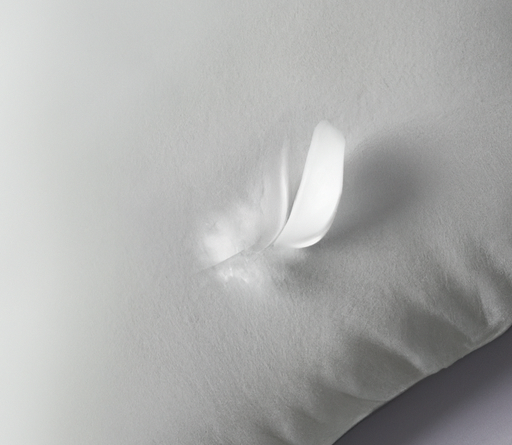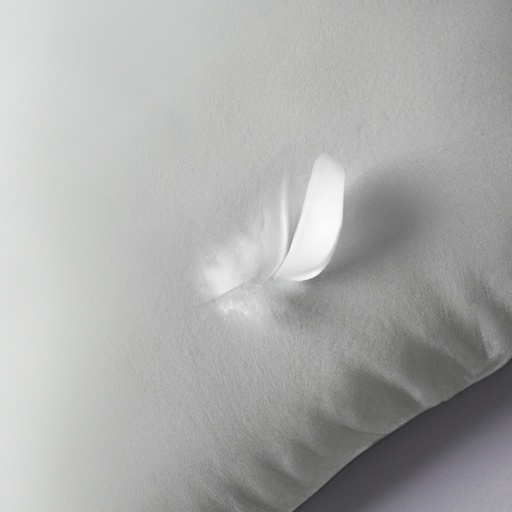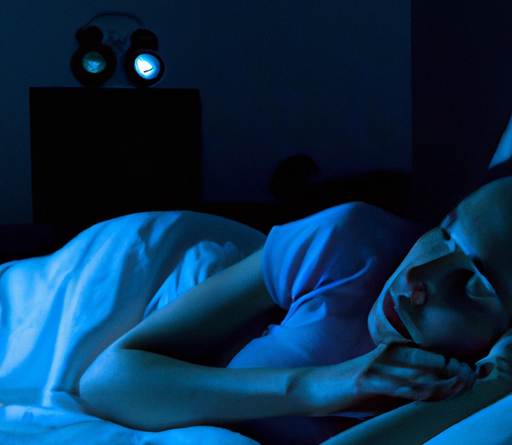
Do you ever find yourself lying awake in bed, unable to fall asleep? We’ve all been there! The struggle to fall asleep can be frustrating, especially when your mind is racing with thoughts and worries. But don’t worry, I’m here to help! In this article, we’ll discuss some tips and tricks on how to fall asleep quickly and peacefully. So, if you’re tired of counting sheep and staring at the ceiling, keep reading, because you’re about to learn some valuable techniques that will have you snoozing in no time!
It’s no secret that a good night’s sleep is vital for our overall well-being. Quality sleep allows our body and mind to recharge and rejuvenate, preparing us for the next day’s challenges. However, for many people, falling asleep can be a real challenge. If you often find yourself tossing and turning, unable to find that elusive slumber, it’s time to try some proven methods that can help you fall asleep quickly. From creating a peaceful sleep environment to adopting relaxation techniques, we’ll cover it all in this article. So get ready to bid farewell to sleepless nights and say hello to a peaceful and restful sleep. Trust me, you’ll thank yourself in the morning!

Table of Contents
How to Fall Asleep Quickly
Understanding the Importance of Quality Sleep
Quality sleep is essential for maintaining overall health and well-being. Sleep plays a vital role in various bodily functions, including physical and mental restoration, memory consolidation, and hormonal regulation. It is during sleep that our body repairs itself and prepares for the challenges of the next day. However, the fast-paced lifestyle and increased stress levels often lead to sleep deprivation, which can have detrimental effects on our bodies.
The Role of Sleep in Overall Health
Getting enough sleep is crucial for staying healthy and functioning at our best. Sleep deprivation can impair cognitive functions, such as memory, attention, and problem-solving skills. It can also negatively impact mood, leading to irritability and mood swings. Lack of quality sleep is associated with an increased risk of chronic conditions like obesity, diabetes, and heart disease. Adequate sleep is also important for a robust immune system, as it helps our body defend against illness and infection.
Effects of Lack of Sleep on Physical and Mental Well-being
When you consistently lack sleep, it can take a toll on both your physical and mental health. Physically, it can lead to weight gain and an increased risk of developing conditions like diabetes and cardiovascular disease. Lack of sleep also weakens the immune system, making you more susceptible to illnesses.
On a mental level, sleep deprivation can impair cognitive functions and affect your mood. It can make it difficult to concentrate, remember things, and think clearly. It can also lead to increased irritability, anxiety, and depression. Additionally, lack of sleep can contribute to accidents and decreased productivity.
Creating a Relaxing Sleep Environment
To promote quality sleep, it’s important to create a relaxing sleep environment. Your bedroom should be a sanctuary dedicated to rest and relaxation.
Choosing a Comfortable Mattress and Pillows
One of the key factors in creating a comfortable sleep environment is selecting the right mattress and pillows. Your mattress should provide adequate support and comfort for your body type and sleeping position. Similarly, your pillows should support your neck and head properly to prevent any discomfort. Investing in a quality mattress and pillows can greatly improve your sleep quality and help you fall asleep more easily.
Controlling the Temperature and Lighting in the Bedroom
The temperature and lighting in your bedroom play a crucial role in creating a sleep-friendly environment. The ideal room temperature for sleep is between 60 and 67 degrees Fahrenheit. You can use a fan or adjust your thermostat to achieve this temperature. Additionally, ensure that your bedroom is dark and quiet. Consider using blackout curtains or wearing an eye mask to block out any unwanted light. You can also use earplugs or a white noise machine to minimize any disturbing noises that can disrupt your sleep.
Establishing a Consistent Bedtime Routine
Having a regular sleep schedule can greatly improve your sleep quality and make it easier for you to fall asleep quickly.
The Benefits of a Regular Sleep Schedule
Going to bed and waking up at the same time every day, including weekends, helps regulate your body’s internal clock. This internal clock, also known as the circadian rhythm, helps control your sleep-wake cycle. By sticking to a consistent sleep schedule, you can make it easier for your body to recognize when it’s time to sleep and when it’s time to wake up. This can lead to more restful and refreshing sleep.
Activities to Promote Relaxation Before Bed
Establishing a bedtime routine that involves relaxing activities can signal to your body that it’s time to wind down and prepare for sleep. Engaging in activities like reading a book, taking a warm bath, or practicing deep breathing exercises can help calm your mind and relax your body. You can also consider incorporating relaxation techniques such as meditation or progressive muscle relaxation into your routine. Experiment with different activities to find what helps you unwind and prepare for sleep.
Implementing Good Sleep Hygiene Practices
Having good sleep hygiene practices can significantly improve your ability to fall asleep quickly and stay asleep throughout the night.
Limiting Caffeine and Alcohol Intake
Both caffeine and alcohol can disrupt your sleep patterns and interfere with your ability to fall asleep quickly. Caffeine is a stimulant that can keep you awake and alert, so it’s best to avoid consuming it at least six hours before bedtime. Similarly, although alcohol may make you feel sleepy initially, it can cause disturbances in your sleep and prevent you from experiencing restful sleep. It’s advisable to limit your alcohol consumption and avoid drinking close to bedtime.
Avoiding Electronic Devices Before Sleep
The blue light emitted by electronic devices such as smartphones, tablets, and laptops can interfere with your body’s production of melatonin, a hormone that helps regulate sleep. To promote better sleep, it’s recommended to avoid using electronic devices at least one hour before bedtime. Instead, engage in relaxing activities that do not involve screen time, such as reading a book or listening to calming music.

Exploring Natural Remedies for Better Sleep
If you’re struggling to fall asleep quickly, there are several natural remedies that can help promote better sleep.
Herbal Teas and Calming Essential Oils
Certain herbal teas, such as chamomile and lavender, have calming properties that can help relax your body and mind before bedtime. Sipping on a warm cup of herbal tea can create a soothing ritual that prepares your body for sleep. Similarly, using essential oils like lavender or chamomile in a diffuser or applying them to your pulse points can promote relaxation and improve sleep quality.
Relaxation Techniques and Meditation
Relaxation techniques, such as deep breathing exercises, progressive muscle relaxation, and guided imagery, can help calm your mind and relax your body. Incorporating these techniques into your bedtime routine can assist in reducing stress and anxiety, allowing you to fall asleep more easily. Meditation can also be an effective practice for promoting relaxation and improving sleep quality. Apps or guided meditation recordings can help you get started if you’re new to meditation.
Understanding and Managing Sleep Disorders
If you consistently struggle with falling asleep quickly despite implementing healthy sleep habits, you may be dealing with a sleep disorder. It’s important to recognize the signs and seek professional help for diagnosis and treatment.
Identifying Common Sleep Disorders
Some common sleep disorders that can affect your ability to fall asleep quickly include insomnia, sleep apnea, restless leg syndrome, and narcolepsy. Insomnia is characterized by difficulty falling asleep or staying asleep, while sleep apnea is marked by pauses in breathing during sleep. Restless leg syndrome causes uncomfortable sensations and an urge to move the legs, often interfering with sleep. Narcolepsy is a neurological disorder that causes excessive daytime sleepiness and sudden, uncontrollable sleep attacks.
Seeking Professional Help for Diagnosis and Treatment
If you suspect you have a sleep disorder, it’s important to consult a healthcare professional or a sleep specialist for an accurate diagnosis. They can conduct a thorough evaluation and recommend appropriate treatment options tailored to your specific needs. Treatment for sleep disorders may include lifestyle modifications, medication, or the use of devices like continuous positive airway pressure (CPAP) machines for sleep apnea.
Exercising for Better Sleep
Regular physical activity can positively impact your sleep quality and make it easier for you to fall asleep quickly.
The Relationship Between Physical Activity and Sleep
Engaging in moderate-intensity exercise, such as brisk walking, jogging, cycling, or swimming, can help regulate your sleep-wake cycle and promote deeper sleep. Exercise increases the production of endorphins, which can improve your mood and reduce anxiety and stress, making it easier to fall asleep. However, it’s important to avoid exercising too close to bedtime, as it can stimulate the body and make it difficult to wind down.
Choosing Suitable Exercises for Better Sleep
When incorporating exercise into your routine to improve your sleep, choose activities that you enjoy and that suit your fitness level. Aim for at least 150 minutes of moderate-intensity exercise per week, or 75 minutes of vigorous-intensity exercise. It’s best to engage in physical activity earlier in the day to allow your body enough time to wind down before bedtime.
Managing Stress and Anxiety for Improved Sleep
Stress and anxiety can significantly hinder your ability to fall asleep quickly. Managing these factors is crucial for achieving quality sleep.
Identifying Stressors and Triggers
Identifying the sources of stress and anxiety in your life can help you develop strategies to manage them effectively. Common stressors can include work pressure, financial worries, relationship issues, or personal health concerns. Recognizing these stressors can help you find ways to mitigate their impact and promote relaxation before bedtime.
Effective Relaxation Techniques and Stress Management Strategies
In addition to relaxation techniques like deep breathing and meditation, there are various other strategies to manage stress and anxiety. These can include engaging in hobbies or activities that bring you joy, practicing mindfulness, journaling, or seeking support from family, friends, or a therapist. It’s important to find what works best for you in order to effectively manage stress and improve your sleep quality.
Evaluating Dietary Factors that Affect Sleep
Your dietary choices can significantly impact your sleep quality. Certain foods can promote or hinder your ability to fall asleep quickly and stay asleep throughout the night.
The Impact of Food Choices on Sleep Quality
Consuming heavy or spicy meals close to bedtime can disrupt your sleep by causing indigestion and discomfort. It’s best to have your last meal or snack at least two to three hours before sleep. Additionally, sugary or high-carbohydrate foods can cause spikes in blood sugar levels, leading to energy crashes and difficulty falling asleep. Opt for a balanced diet that includes lean proteins, whole grains, fruits, vegetables, and healthy fats to promote better sleep.
Foods that Promote or Hinder Sleep
Some foods have natural sleep-promoting properties that can help you fall asleep quickly. These include foods rich in tryptophan, such as turkey, chicken, nuts, and seeds, as well as complex carbohydrates like whole grains, which can increase the production of serotonin, a brain chemical that aids in sleep regulation. On the other hand, caffeine-containing drinks, like coffee and energy drinks, should be avoided close to bedtime, as caffeine is a stimulant that can interfere with sleep.
Conclusion
In conclusion, getting quality sleep is essential for your overall health and well-being. By understanding the importance of sleep and implementing healthy sleep habits, such as creating a relaxing sleep environment, establishing a consistent bedtime routine, practicing good sleep hygiene, exploring natural remedies, managing sleep disorders, exercising, managing stress and anxiety, and evaluating dietary factors, you can significantly improve your ability to fall asleep quickly and enjoy a restful night’s sleep. Prioritize your sleep and adopt these healthy habits to reap the benefits of a good night’s rest.




